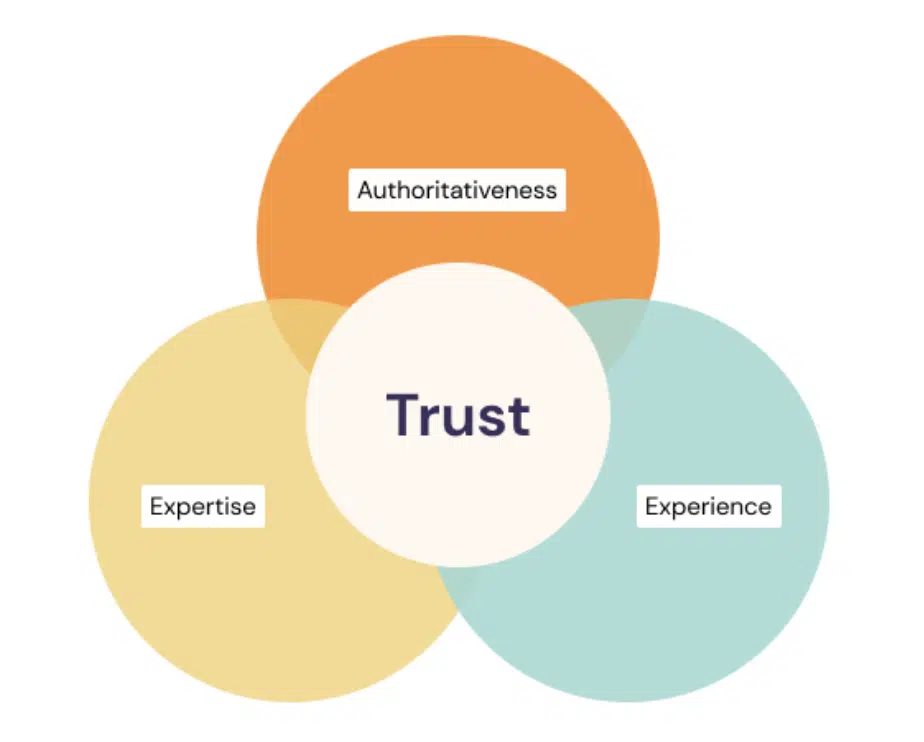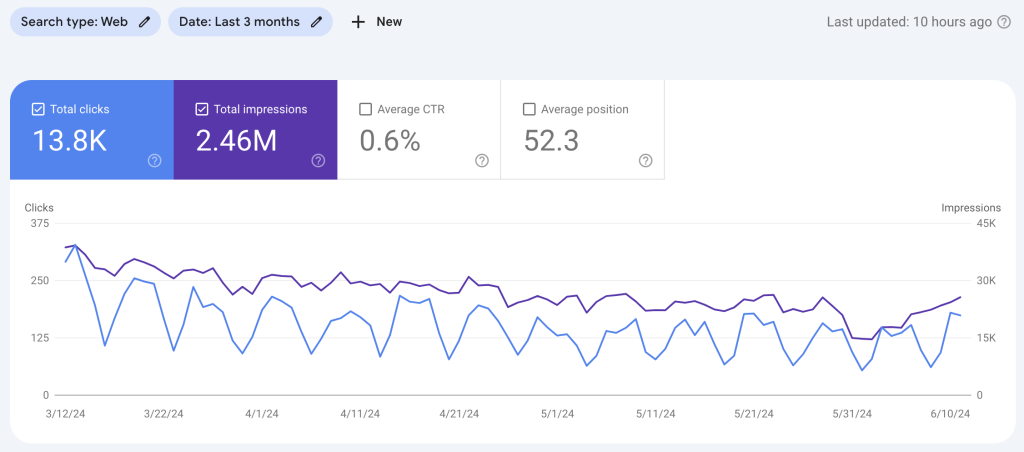In March 2024, a massive leak of roughly 2,500 documents hit the internet. The topic? How the Google Search Algorithm works.
The unexpected event released thousands of details about ranking features and metrics (although it did not clarify how much it weighted each of these). Readers were treated to insights on how content is ranked, boosted, and demoted on Google’s industry-dominating search engine. In late May, Google confirmed that the leak is, indeed, real, which means the internet has been gifted with a unique glimpse into how Google ranks content — or at least how the company did as of March 2024.
Anyone looking to establish, re-establish, or maintain SEO should be sitting up and paying attention. That said, sifting through 2,500 pages is a big ask. We’ve scoured the reports and media emerging from the leak and pulled together five of the biggest takeaways you want to keep an eye on (along with a few bonus SEO factors to keep in mind) during your next content review.
Backlinks have always been a contentious subject, but many have maintained their aura as a critical component of a link building SEO strategy. And now we know, for sure, that they matter. The quality of each backlink is important here, but relevance is also important. Don’t just value a backlink because it comes from a reputable site, but also look for those links that come from sites relevant to your business.
Link diversity is another area to consider. Don’t pile up backlinks from the same source, even if it’s a good one. Look for a variety of relevant, high-quality third-party sources to provide a smorgasbord of off-site signaling that your site is both relevant and credible in your niche.
Clickstream data (that is, the process a user takes as they click to and around your website) is also important. There are indications that data from Chrome (the most popular browser by a long shot) may even be particularly important in making these ranking decisions.
Click data can help you rank, which means user experience (UX) isn’t just helpful. It is an essential part of good SEO.

The takeaway here? Never do SEO without UX in mind. Take advantage of every consumer interaction to reinforce UX. Focus on keywords that are less competitive to show up higher in search results. Fill out thoughtful meta descriptions. Consider the user experience when someone clicks through a link.
Also build up your brand across a variety of digital marketing channels — YouTube, social media, display ads, etc. Use these touch points to build positive brand recognition. That way, when a customer does see you show up in the SERPs, they’ll recognize you and click through with confidence.
Topical authority has been recognized as an important part of Algorithm Google Search for a while now. Ever since the Helpful Content Update came out in 2023, the emphasis on E-E-A-T (experience, expertise, authority, trustworthiness) has gone through the roof. Now, we’re seeing that your topical relevance shouldn’t just be clear. It should be reflected across your web page.

Google uses site embeddings to determine how on-topic each page is. It turns out that the search engine is also vectorizing entire sites and comparing pages to see how on-topic they are to a brand’s overarching topical authority. Post a page that isn’t in line with your site’s topical relevance, and it may have trouble ranking. Make sure you have a strong website content strategy in place.
User-generated content (UGC) is also important here. Commentary from consumers on your site can be a ranking factor based on your topical authority. One easy test could be turning off UGC on your site to see if it helps or hinders your search ranking. If positive, on-theme comments are common, it might help. If negative or tangential threads are a regular occurrence, they might be diluting your topical authority.
In the past, Google denied using a site-ranking metric, even if tools like Google Analytics seemed to indicate otherwise. Turns out they have one, and it’s called site authority. While it remains mysterious, especially as it relates to downstream website scoring, we know it exists, which means the quality of your brand’s online presence is a really important ranking factor.
Make sure every time you invest in digital marketing, you’re building your brand. If you’re creating a piece of online content, procure the byline of a reputable author or subject matter expert. If you’re trying to get backlinks, make sure they’re clean, high-quality, and relevant. Always keep your content helpful and build that positive consumer sentiment.
Google’s core indexing system, called Alexandria, is organized into tiers using its SegIndexer. The most important, consistently updated content is stored in a flash memory tier. Less important content is put on solid-state drives for quick and easy access when needed. Poor quality or irregularly updated documents go on TeraGoogle, a secondary, long-term indexing system composed of standard hard drives.
What does this mean for your content? Make sure you’re indexing all of your pages. (If they don’t automatically rank, you can manually submit them using Google Search Console.) Then, review, optimize, and delete content as needed.

It’s been a rough year for a lot of SEOs as they’ve navigated more than one algorithm update and the arrival of AI Overview. The Google Algorithm leak was a godsend for many looking for a way to react and improve their chances of surviving and, eventually, thriving again after the Google Update.
There are many other takeaways besides these five, too. For instance, the leaked documents indicate that:
The biggest takeaway of them all? Google isn’t a complete black box. SEOs have cracked many of the codes already, and this recent leak will help us all do even better in the future.
If you’ve been struggling in the wake of the Google algorithm update in the past months, don’t give up hope. Use the tips above to retool your content and SEO strategies. If you find you need a helping hand along the way, reach out for a free strategy session. Together, we can help you right the ship and get your site back in the good graces of Google’s ever-intimidating algorithm.